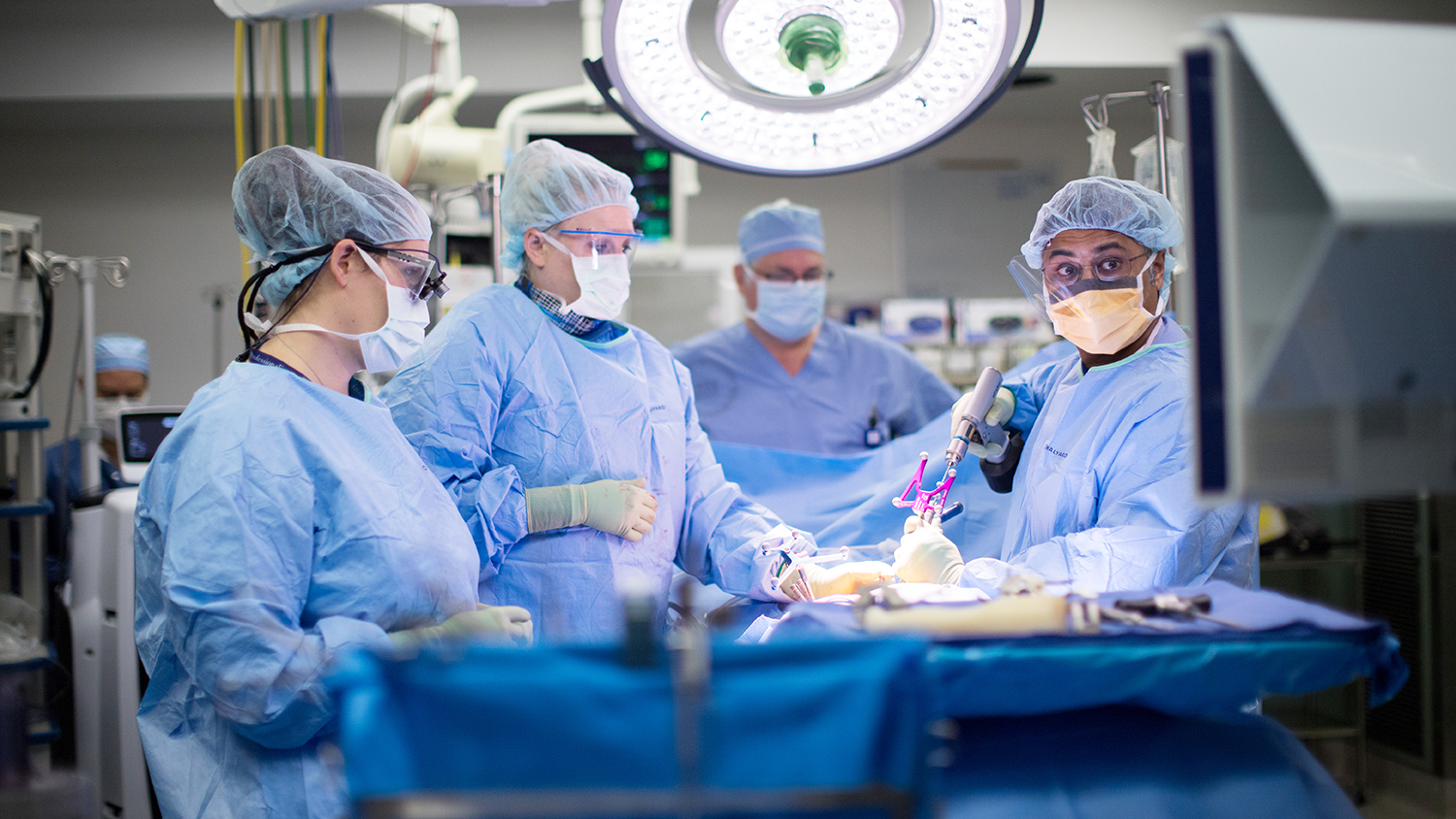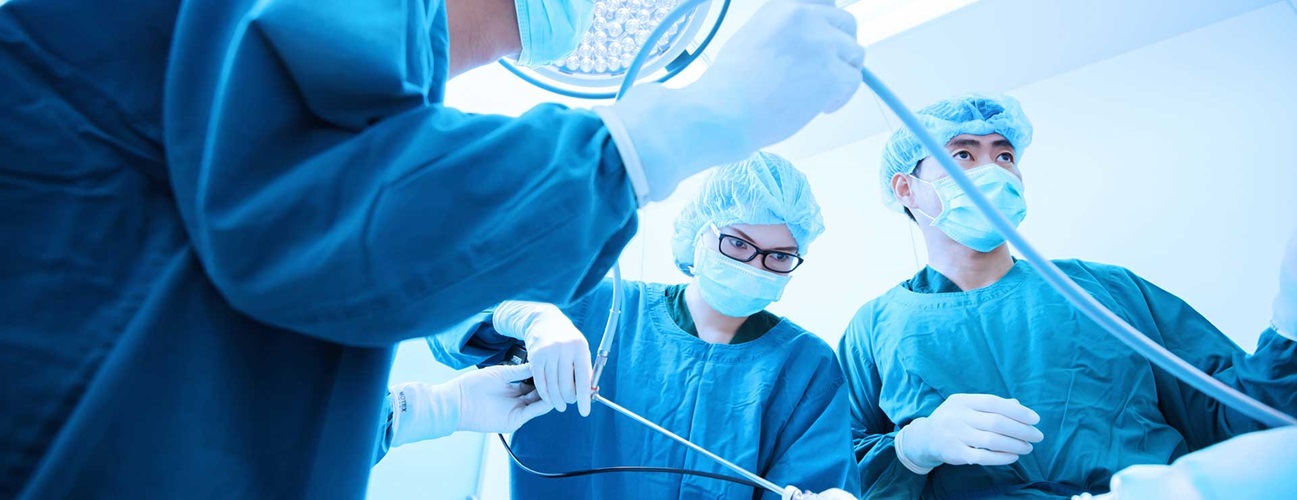Anticipate Following a Spinal Fusion Operation: Patients who suffer from persistent pain as a result of scoliosis, arthritis, an accident, a ruptured disc, or other major back ailments may benefit from spinal fusion surgery, which is a life-changing procedure. Spinal fusion employs surgical procedures that are designed to replicate the way in which the body heals a fractured bone. You can achieve increased spinal stability and strength by fusing together two or more vertebrae. Lets know more What to Anticipate Following a Spinal Fusion Operation.

The length of time it takes to recover from a spinal fusion varies on the individual, the scope of the surgery, any significant operations the patient has undergone in the past, their age, the lifestyle choices they make, and their overall health. Continue reading to find out what you should anticipate during each phase of the recovery process following spinal fusion surgery.
Immediately Following the Procedure
After your operation, you should expect to spend anywhere from two to five days recovering in the hospital under the close observation of both medical professionals and nursing staff. It is possible that they will extend your stay in the hospital depending on the location of the surgery, how extensive it was, and how many prior surgeries you have had in the recent past. Patients who are considered to be at a high risk often require an extended hospital stay. Lets know more What to Anticipate Following a Spinal Fusion Operation.
Opioid medications are typically prescribed by medical professionals to reduce levels of pain and suffering. When used as part of a pain treatment plan, ice packs and heat wraps are typically applied for 15 minutes at a time, followed by a rest period of 2 hours.

A great number of patients are taken aback when they learn that not only are they able to walk immediately after surgery, but that doing so is actively encouraged on their part. Walking and other forms of mild exercise are essential components of the healing process. After your operation, you will be working closely with both physical and occupational therapists to acquire the skills necessary to move around in a secure manner.
They instruct you in modified ways to perform the tasks listed below:
Get in and out of bed, sit down, stand up from a seated position, walk around, and get back in bed.
At this point in the healing process, any bending or twisting of the spine can cause the process to be derailed. Because of this, in addition to the effect that opioids have on both coordination and drowsiness, you will not be permitted to drive in any capacity in the days after your operation. You should ask a friend or member of your family to drive you home, and you should try to keep your car rides to a minimum in order to prevent unintentional twisting of your spine.

Back braces provide the spine with a mechanical stabilization that helps to limit motion and avoid any bending or twisting that could cause further injury. This stabilization is necessary to enable adequate recovery for some patients, and it is crucial that they receive it. If your doctor believes that you would benefit from wearing a back brace, you can wear a shirt that fits snugly under the brace to reduce the discomfort and irritation caused by the brace pressing against your skin. Lets know more What to Anticipate Following a Spinal Fusion Operation.
1-4 Weeks Post-Surgery
After you have recovered from the operation and returned home, you will need to strike a balance between active and passive recovery. The vertebrae in your spine benefit from gentle movement because it encourages the healing process and strengthens the muscles in your back that support your spine. Walking frequently is an excellent method to include activity into your day without jeopardizing the repair of your spine.

To keep from arching or twisting your back in any way, make sure to stick to the movement modifications that your physical or occupational therapist showed you how to do. If you need to bend over, maintain a neutral position in your spine while you hinge at the hips or bend at the knees. This will allow you to bend more easily. Lifting anything heavier than 8–10 pounds should be avoided for the time being.
The majority of patients report that lying in a reclined position while they sleep is the most pleasant approach to get some shut-eye. Explore a range of cushion heights and densities to find the one that best suits your needs in terms of comfort. If you put a pillow on either side of your head as you sleep, you won’t be able to move around as much or turn over as you would otherwise. Lets know more What to Anticipate Following a Spinal Fusion Operation.

You might ask a close friend or member of your family for help with things like cooking, going food shopping, doing daily housework, and other similar activities. This portion of the healing process can be painful and irritating, but it is a necessary step in the process of regaining the strength in your spine. In order to get your spine ready for the next stage of your recovery, your doctor or physical therapist may have given you some exercises to perform.
Your pain medication will have been recommended for you by your doctor so that you can control the pain and suffering you are experiencing. Because it is so difficult to obtain fresh opioid prescriptions, you should discuss with them the best way to reduce the amount of medication you take each day. Four weeks after surgery, you should work toward weaning yourself off of any pain medication you are still using. Lets know more What to Anticipate Following a Spinal Fusion Operation.
1–3 Months After the Procedure
The following stage of the recovery process involves the fused portions of your spine beginning to grow together into one continuous structure. You should still avoid bending at the back, twisting your spine, and lifting heavy things because these actions place strain on the segments of your spine before they have fully fused together. Bending at the back is especially dangerous for people who have scoliosis.
You should get some exercise and walk every day so that you can speed up the healing process and strengthen your strength. One of the many advantages of walking is that it helps your digestive system and gives your cardiovascular system a boost. You will also start outpatient physical therapy at this point in order to go back to your typical movement patterns. Your physical therapist will devise an individualized workout programmed for you, taking into account your needs and abilities, as well as the space you have available for training and the demands of your job. Lets know more What to Anticipate Following a Spinal Fusion Operation.
You will be able to gradually resume your regular activities, such as driving, light housework, and work (as long as it does not involve strenuous physical activity), as your strength and mobility improve as a result of your training.
3-6 Months Post-Surgery
The three months of rest you need to give your body following surgery are necessary, but during that time, you will see a decrease in muscle tone, strength, and range of motion. The following three months are going to be focused on bringing down your general stiffness and getting your strength back. Lets know more What to Anticipate Following a Spinal Fusion Operation.
Read More:
Following a period of rest for three months, the primary focus of your healing and recovery process should now be exercise. Movement promotes healing and assists in the fusion process that is currently taking place in your spine, thus mindful exercise is beneficial to the fusion process that is currently taking place there.

You should be able to resume doing exercise and stretching your stiff muscles, but you should continue to avoid bending, twisting, and lifting if at all possible. Collaborate with a physical therapist to devise an exercise regimen that can be maintained over the long term. You will be able to regain muscular tone, strength, and fitness, in addition to flexibility and mobility, by performing these exercises. Lets know more What to Anticipate Following a Spinal Fusion Operation.
If you have a profession that requires a lot of physical exertion, your physical therapist can modify your workout routine such that it also includes work conditioning. Your body will be better prepared for your daily work, and you will learn how to do work activities in a safe manner as a result of this. Lets know more What to Anticipate Following a Spinal Fusion Operation.
Postoperatively, between 6 and 12 Months
After surgery, the majority of patients reach full recovery in about 8 months. At this point, you will have a consultation with an orthopedic specialist to determine whether or not the operation was a success and whether or not your vertebrae have fused as planned.

You will be able to return to normal life as soon as you have clearance from your orthopedic expert to do so. This includes activities such as bending, twisting, and lifting! For the time being, it is strongly suggested that you refrain from engaging in high-impact activities such as contact sports and extreme sports. These tasks may be possible in the long run, but at this stage of the healing process, there is too much effect on your spine for you to do them.
1-2 Years After the Procedure
After a year has passed, it is likely that you will be able to resume all of your regular activities.
After surgery, it might take up to 18 months for the vertebrae in your spine to finish healing and fusing together completely. In the event that you suffered nerve injury prior to or during undergoing surgery, the timetable for recovery may be extended to a total of two years.

There are a number of things that can prolong the healing process and make it take longer to get well. These include things like smoking and other items containing nicotine (nicotine narrows blood vessels and decreases bone formation), being overweight, having osteoporosis, developing diabetes, and having poor nutrition.
Medications containing steroids
KLM ORG Spine clinic in Gwalior is here to help you get ready for your upcoming spinal fusion surgery.
The best approach to get yourself ready for the weeks and months that lie ahead after a spinal fusion is to be aware of what to anticipate. Even though the recuperation process can be annoying at times, the end result of a successful operation is more than worth it.
Contact our staff at 0751-4000721 if you have any inquiries regarding the forthcoming spinal fusion surgery that you are scheduled to undergo. We will do everything in our power to set your mind at ease.

Spinal Fusion Operation In Gwalior.
Dr Vipin the managing director of KLM Group. He is a well-known gold-medalist Orthopedic Surgeon In gwalior also Spinal Fusion Operation Surgeon In gwalior , strongly reputed for his trusted and focused attitude our rich knowledge and experience, be assured of quality healthcare and world-class medical services in Orthopedic, Spine care In gwalior, Ophthalmology, X-ray & Diagnostics services along with physiotherapy services. You can get the best Spinal Fusion Operation In Gwalior.
Book Your Consultation
Website: https://tinyurl.com/yyzvwmck
Email: info@klmgrou p.org
Ph: 0751-4000721,Mob: 7804826825
Address: 12, Saraswati Nagar, University Road, Near Silver Estate, Thatipur,
Address Link: https://g.page/r/CQ0WqKLEXPWeEAE
